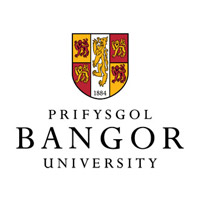fees waived
Economics and Finance, BSc (Hons)
Bangor University, United Kingdom
Subject ranking
UK / Guardian 2025 22nd
UK / ARWU 2024 40th
UK / THE 2025 45th
Costs
food & rentS$15.7K / year
Entry requirements
Scholarships
10 available
Unlimited quantity
Unlimited quantity
Unlimited quantity
Unlimited quantity
Unlimited quantity
Unlimited quantity
Limited quantity
Information
Code
Code
Intakes
Website (External)
Programmes
Information
Duration
2028
Course summary
This programme will allow you to combine the study of economics in general with a specialism in financial markets and corporate finance. It will allow you to gain an understanding of the workings of modern economies and the financial markets that lie at their heart. You will study how firms, individuals and governments make decisions that shape society at large. You will also learn how the financial markets, which moderate these decisions, function. In doing so, you will develop skills that will be of great value for your future life and career, including those related to modelling, data and analytical thinking. Economics provides us with different ways of thinking about the world and how it functions. It helps us to understand how individuals, businesses and governments do behave; and gives us insights into how they should behave. At one extreme, economics informs the decisions that governments make about some of the most pressing issues of our day, including climate change and inequality. It informs how businesses make decisions about everything from pricing and advertising to investments in product development and corporate strategy. At the other extreme, it can help us as individuals to make better decisions about our own lives; including how hard we should work and how much we should save for our retirements. The study of finance consists of two main branches – financial markets and corporate finance. Corporate finance focuses on the finance function within firms. It is concerned with the raising of capital to fund the creation, development and expansion of businesses. It considers how firms decide which projects or acquisitions to invest in; how to organise the firm’s capital structure in order to fund those investments; and how and when to return capital to investors. Financial markets play a crucial role intermediating between investors who have excess funds and individuals, firms or governments who have a need for those funds. Money markets, bond markets, equity markets and derivatives markets involve different forms of intermediation, based on a variety of financial instruments which distribute risks and returns differently between lenders and borrowers. At Bangor Business School, we have a team of highly qualified and experienced academics with interests in a wide variety of topics in economics and finance; including behavioural finance, corporate finance, regulation, quantitative economics and public finance. Our team is engaged in world class research in economics and finance, and regularly works with policymakers in government, regulators and think-tanks as well as practitioners in the financial sector. They are dedicated to bringing their insights from the worlds of policy, practice and research to help you to develop your knowledge and understanding of economics and finance.‘Placement Year’ and 'International Experience Year’ options are available for this course. You will have the opportunity to fully consider these options when you have started your course at Bangor and can make an application for a transfer onto such a pathway at the appropriate time. You can find more information about these options on our website and if you have any questions, please get in touch.If you don’t have the required qualifications for this degree-level course or are looking to re-enter education after time away from study, then a Foundation Year Programme might be the right choice for you.
A local representative of Bangor University in Singapore is available online to assist you with enquiries about this course.

